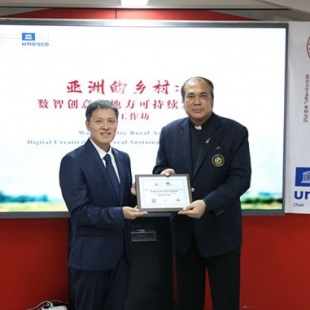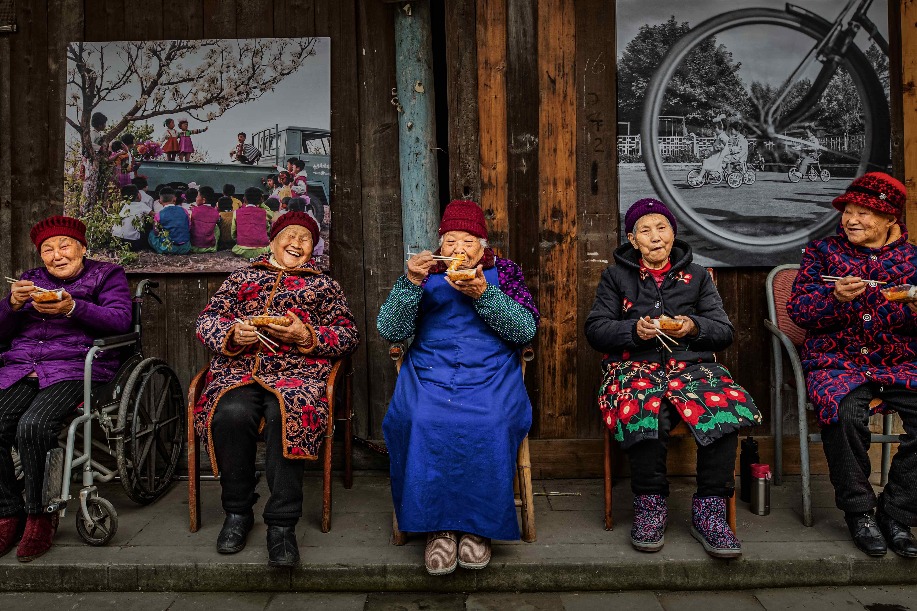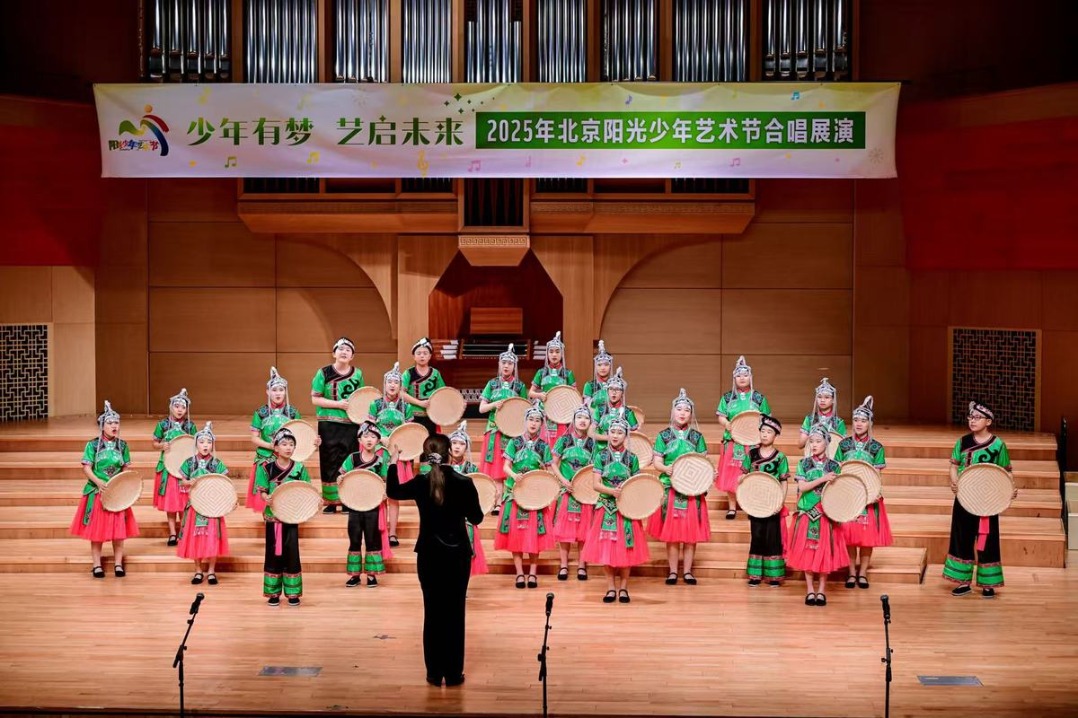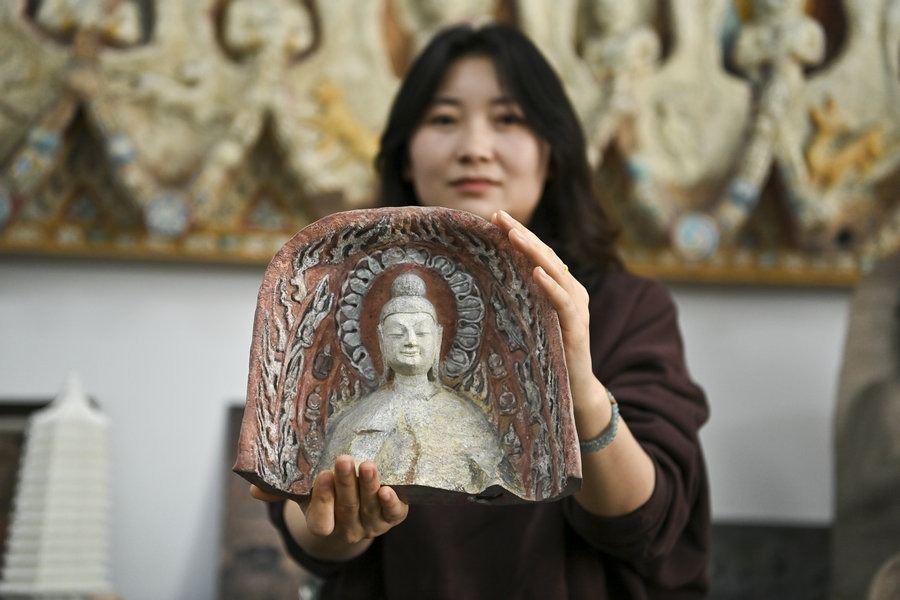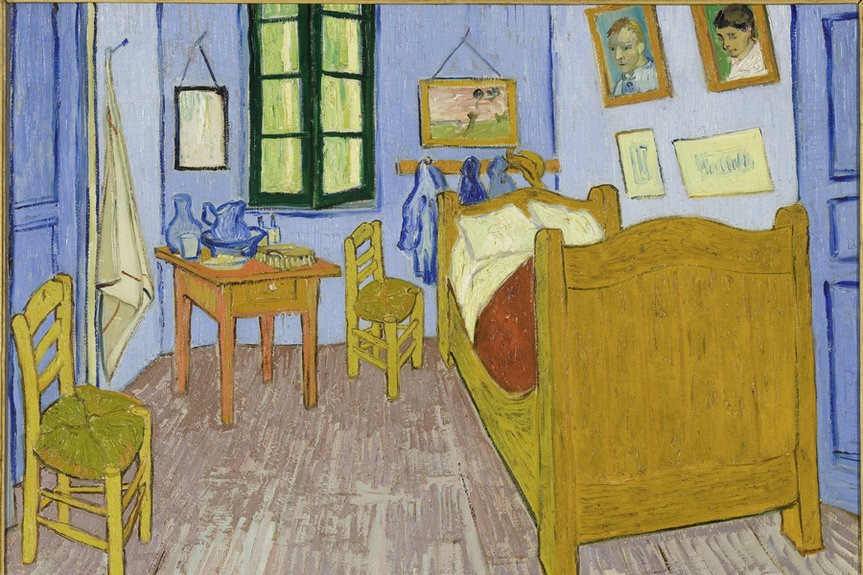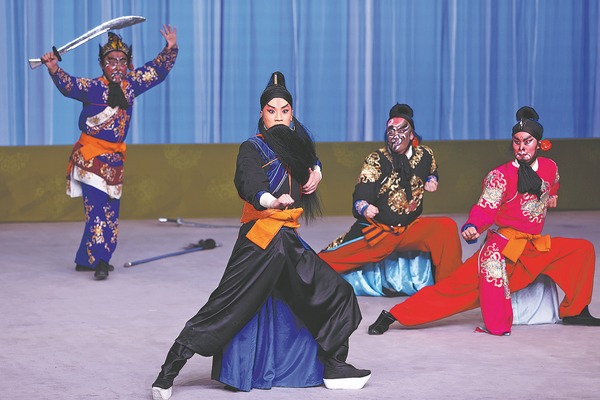Global scholars explore rural vitalization in digital era

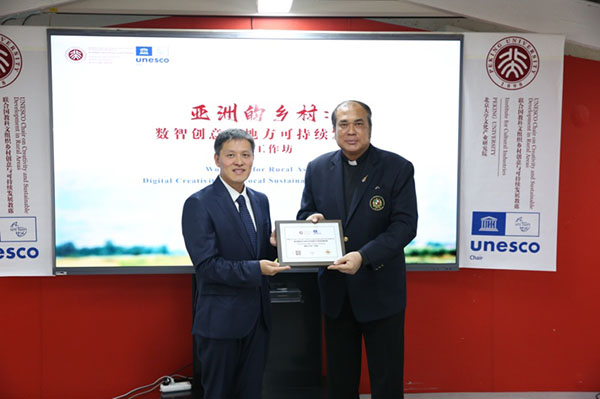
More than 50 scholars from China, Thailand, France and South Korea gathered to explore cutting-edge approaches to technology-enabled rural vitalization at Peking University on May 18.
The scholars attended the academic workshop, "Rural Asia: Digital Creativity and Local Sustainable Development", hosted by the UNESCO Chair on Rural Creativity and Sustainable Development, Peking University's School of Arts and the Institute for Cultural Industries.
Associate professor Zuo Jing from Anhui University unveiled plans for a biennial to merge art interventions with community engagement in global villages. Vice-president of Assumption University of Thailand Kitti Phothikitti outlined Thailand's rural digitalization challenges, proposing tech-transfer pipelines. Wang Huanhuan from Beijing Normal University demonstrated AI tools for closing urban-rural education gaps. Professor Chen Ping from Jinan University advocated cultural capital conversion strategies to empower female artists.
Sirichai Fonseka, president of Assumption University, says Asian universities must cultivate tech talent with cultural sensitivity, building knowledge systems that honor tradition while driving innovation.
At the workshop's opening ceremony, Xiang Yong, UNESCO chairperson and dean of Peking University's Institute for Cultural Industries, revealed two milestones in the past year's work. The "Voices of the Village" oral history project recorded over 800,000 words of rural narratives across China and the "global creative villages atlas" database launched with 50 rural innovation benchmark cases.
A global alliance for culture-tech innovation was launched, and its Beijing Declaration called for ethical tech development and cultural preservation.
Thailand's Assumption University was officially designated as a UNESCO Chair International Hub, marking substantial development in the Chair's global network.


